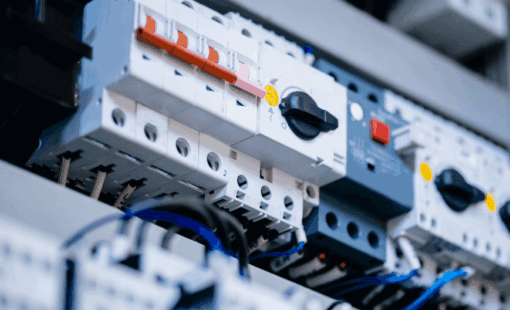System design engineers must balance the demands of time and cost efficiency, and accuracy under tight deadlines. When projects require collaboration between distributed people and/or teams, communication issues can make collaboration a challenge. Conflicts can occur when multiple people have access to the same project documents and drawings, with one engineer making changes that override those made by another user, or small changes might just slip past other engineers. Undetected or overwritten changes like these can cause serious issues in large system or wiring designs that may have a costly effect on manufacturing down the line.
Let’s take the following situation for example: The customer service team identifies a problem with a motor, prompting modifications to be made in the engineering department. The engineer assigned to the task then saves the project on the network after making the necessary modifications. At the same time, another design engineer, unaware of the changes made, has a locally saved copy of the project open for his own minor modifications. The result is an overwritten network file and therefore an incorrect design that is likely to resurface again at a later stage when the correction requires time and money.
With E3.series, minor coordination issues are excluded by design. All views of a project are permanently connected, so that, when for instance a fluid engineer adds a solenoid valve to a manifold drawing, the same valve then appears unplaced in the device tree of the electrical engineer’s project, enabling him or her to include it in the electrical control schematic. If the component is changed or the device tag is renamed on either design, the other will update automatically.
With E3.enterprise, the multi-user extension of E3.series, all users can access any changes their colleagues make in a multi-user environment while still following integrity rules like unique device naming. Regulating who is authorized at every stage of the design is essential for the documentation process. With E3.enterprise, access control, and workflow come as standard. Applying Windows user groups, select teams of engineers can be given specific access rights and projects can be pushed through the workflow and set to specific states. The state of a project determines the access rights of the user groups.
Further access and version control is provided by DS-E3, Zuken’s next-generation data management system for electrical design data. It provides electrical design and manufacturing engineers with current, validated libraries, design data, and BOM information. With this information, they can manage tasks and workflows for change and approval processes and support intelligent design configuration and reuse through module and variant management. The complete design data management functionality is directly integrated into the familiar user interface of the E3.series suite. For easy entry into E3.series design data and library management, DS-E3 is available as a pre-configured starter package.
It contains preconfigured roles, such as schematic designer, panel layout designer, librarian, or manufacturing engineer, which can be adapted to reflect specific requirements. Built on industry-standard object-oriented architecture, DS-E3 StarterPackage is fully equipped to integrate into existing PDM/ PLM and ERP environments, providing a true electromechanical data model with full visibility of electrical designs down to the component level.
A dedicated Library Data Master module manages library information and specifications required for the electrical design process, from schematic, fluid, and cable plan entry to manufacturing documentation. The BoM Data Master generates and maintains accurate component lists that consolidate all associated schematic, wiring, and panel layout/wire harness data, including component information, documents, and assembly drawings all within a single environment.
Since interdisciplinary coordination within an enterprise PLM environment is becoming increasingly important, DS-E3 can integrate with all major PLM and ERP systems and provides SOA-based plug & play connectors; in addition, generic integration APIs are available for other third-party systems.
Learn more about design data management in this industry survey conducted by the research and analyst firm techconsult. 163 companies in Germany, Austria and Switzerland were surveyed about the challenges and methods applied to the design and management of electrical and electronic systems and assemblies.

- Blog
E3.series automation is entering a new era as Microsoft phases out VBS. With the official Python package, Zuken offers a modern, future-proof way to automate E3.series while preserving all familiar capabilities.

- Blog
Use Fields in E3.series to stop splitting designs across multiple pages, keep device inheritance correct, and generate clean reports when multiple functions share one sheet.

- Blog
Use Fields in E3.series to stop splitting designs across multiple pages, keep device inheritance correct, and generate clean reports when multiple functions share one sheet.

- Blog
Despite the best intentions of design engineers, seemingly perfect schematics can unravel the moment they hit the shop floor, especially in wire harness and control cabinet manufacturing. When tiny oversights spark major production headaches, the real question becomes: how can smarter design tools finally close this costly gap?

